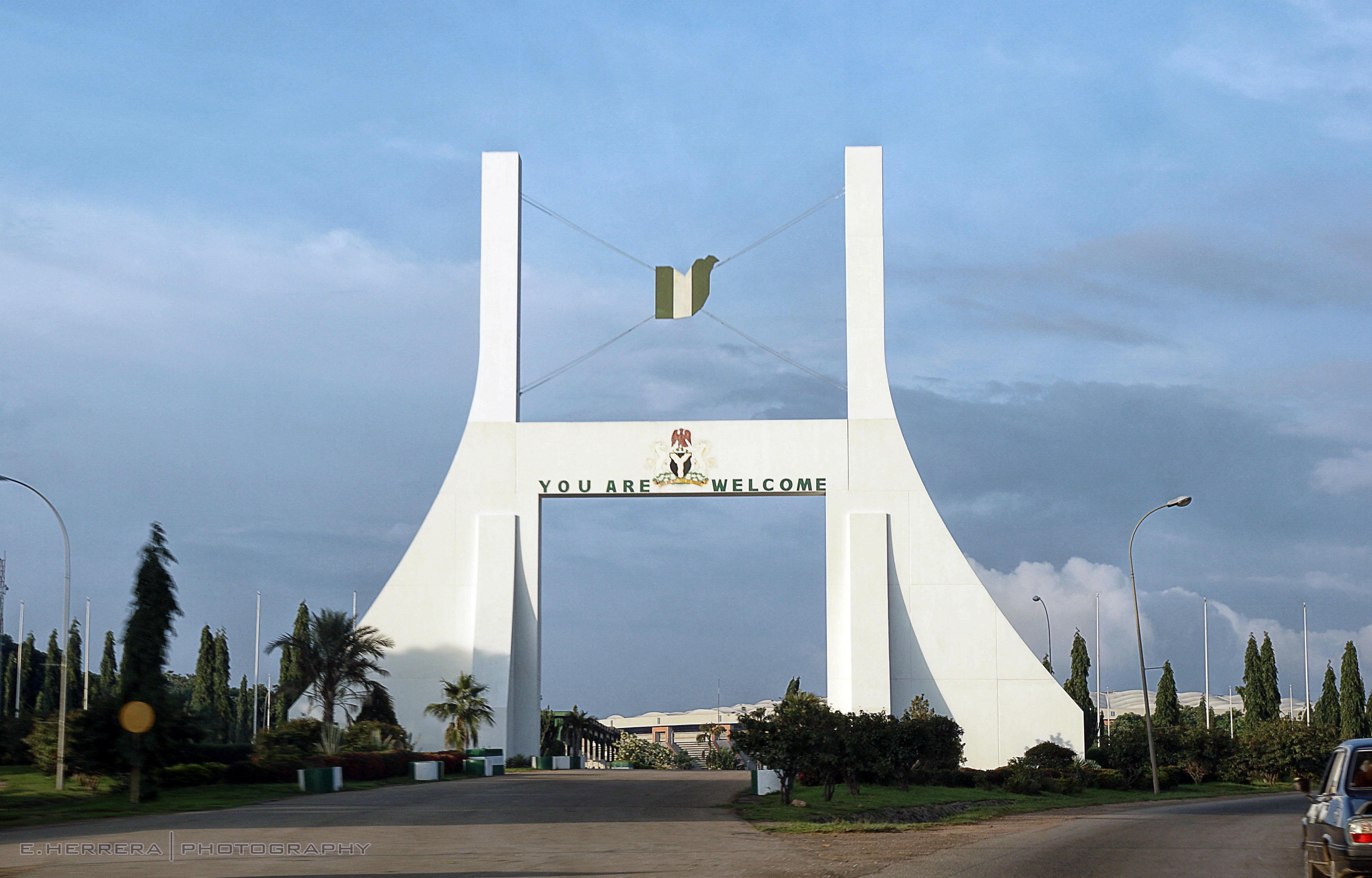Political situation Deficits in the area of democracy and the rule of law
Gate in the Nigerian capital Abuja
The country saw its first democratic transfer of power when Muhammadu Buhari became President in 2015. In 2019, he was confirmed in office through a controversial election process. In 2023, Bola Tinubu won the presidential elections. However, voter turnout was only 29 per cent. In a country of about 220 million people, a mere 8.8 million votes ensured Tinubu's victory.
Overall, elections in Nigeria have not been considered to be fully fair and free so far. Irregularities such as technical shortcomings, intimidation and vote buying continue to be widespread. In the political system, there is a lack of real competition between parties, of checks and balances, and of transparency and accountability.
One positive signal for the process of democratisation is that the two candidates who lost the 2023 presidential elections called on their voters to refrain from violence, only used judicial channels to challenge the election, and accepted the decision of the Supreme Court to dismiss the challenge.
Key issues on the agenda of the Nigerian government are security, anti-corruption and economic reforms. The security situation has deteriorated continuously in the last few years.
Foreign policy activities
Nigeria sees itself as an emerging economy and is taking on responsibility in the international political arena, for instance in United Nations military and police missions. However, in the past few years its international involvement for peace has decreased, as Nigeria is increasingly focusing on security challenges within the country and the region.
As a regional leader, it plays a significant role in determining the policies of the African Union and of the Economic Community of West African States (ECOWAS). In July 2023, President Tinubu was elected chair of ECOWAS. Nigeria is working to get the ECOWAS member states to integrate their markets and jointly engage in conflict prevention and management efforts.
In November 2020, Nigeria ratified the agreement on the African Continental Free Trade Area (AfCFTA). Nigeria is the only member of ECOWAS that has not yet signed the Economic Partnership Agreement with the European Union.
Human rights
The human rights situation in Nigeria has improved since the end of military dictatorship in 1999. Freedom of assembly, association, speech and the press are largely being upheld. Nigeria has an extremely active civil society and a diverse media landscape.
But citizens' rights are not adequately protected. Media workers have been facing increasing repression in the last few years. Government security forces have repeatedly used violence against people who criticise the government, take part in peaceful demonstrations or are suspected of belonging to a radical group.
Twelve of the northern states apply Islamic Sharia law. And millions of Christians in northern Nigeria do not enjoy full freedom of religion, even though this right has been enshrined in the constitution. The death penalty continues to exist in Nigeria.
While gender equality has been enshrined in the constitution, women and girls still face significant disadvantages in everyday life with regard to education and job opportunities, property rights, and political participation. In 2015, Nigeria adopted a progressive law to protect women's and girls' rights. Among other things, the law bans genital mutilation, which had been widespread until then. However, the rates of domestic violence, sexual harassment and rape remain very high. A constitutional amendment that would have provided for a quota for women in parliament and political parties was rejected by a significant majority in March 2022.
Legislators refuse to give equal rights to LGBTIQ+ people. Homosexual acts are a criminal offence. The rights of other disadvantaged groups, too, are subject to restrictions. Persons with disabilities experience discrimination in many ways even though the UN Convention on the Rights of Persons with Disabilities, which was transposed into Nigerian law in 2018, lays down high standards for their protection.
As at: 02/02/2024
